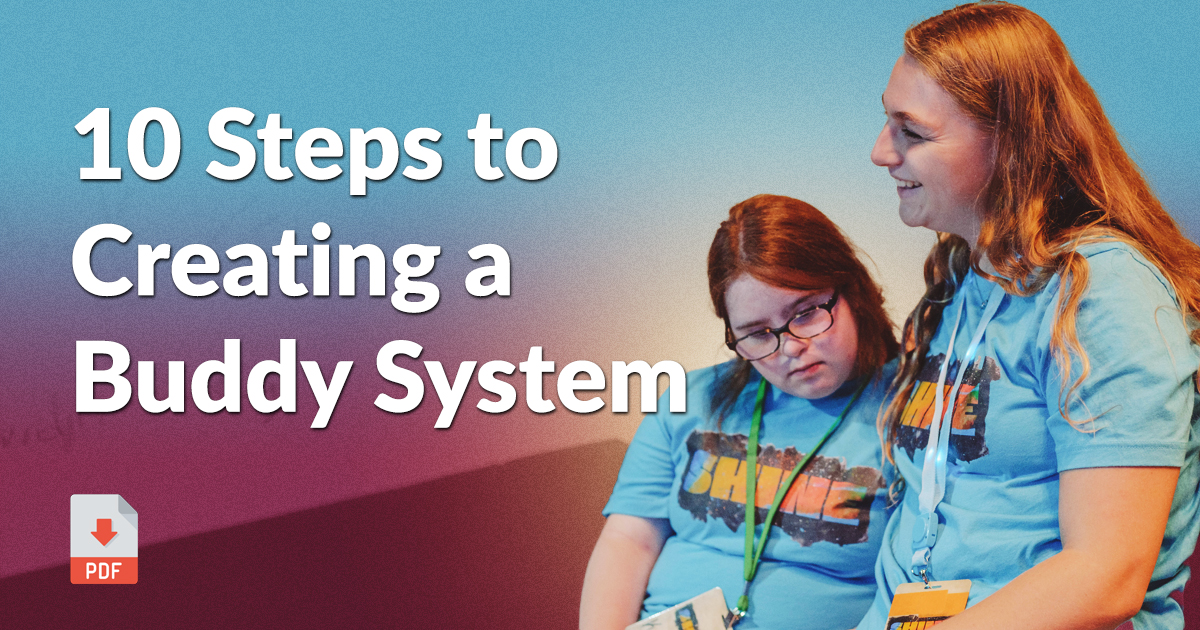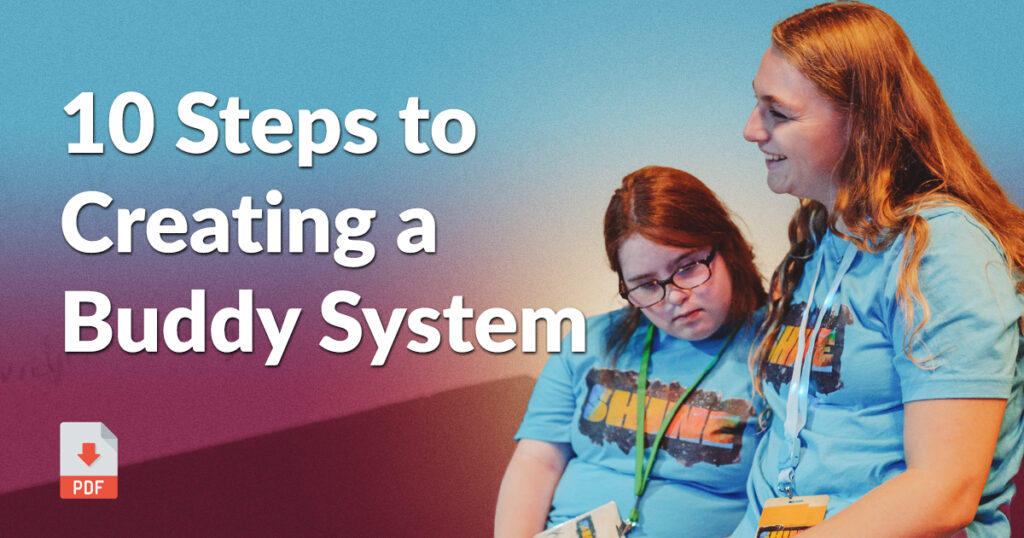Building a buddy ministry at a church to support children and students with disabilities involves creating a structure that fosters inclusion, provides individualized support, and equips volunteers to serve effectively. A buddy system is a win for churches of all sizes.
1. Establish a Vision and Purpose
- Define the mission: Clarify that the buddy ministry aims to ensure all children and students, regardless of ability, can fully participate in church life.
- Gain leadership support: Present the vision to church leaders and secure their backing.
2. Identify the Needs
- Assess your congregation: Understand the number and needs of children and students with disabilities.
- Engage Families: Meet with parents or guardians to learn about their child’s strengths, preferences, and support needs. Have them fill out information sheets that will be vital to the weekly success. Recommended resources: Child information sheet and teen/adult information sheet.
3. Recruit Volunteers
- Seek committed individuals: Look for compassionate and patient volunteers willing to be trained.
- Ensure diversity: Recruit people from various backgrounds and ages to create a well-rounded team.
4. Provide Training and Support
- Offer comprehensive training: Teach volunteers about disabilities, behavior management, and communication strategies. Recommended resource: Volunteer 101 training.
- Focus on spiritual inclusion: Equip buddies to help children and students engage with worship and learning.
- Ongoing support: Provide regular check-ins and additional training as needed.
5. Pair Buddies with Students
- Match thoughtfully: Consider personality, interests, dislikes, and support needs when pairing buddies with students.
- Create consistency: Strive for regularity in buddy assignments to build trust and rapport.
6. Plan for Accessibility and Inclusion
- Modify environments: Ensure classrooms and worship spaces are accessible.
- Adapt programs: Make lessons, activities, and events inclusive for all participants.
7. Build Relationships
- Encourage connections: Foster friendships between buddies and students, as well as with peers. Go the extra mile and create events where buddies can build on those relationships outside of Sunday mornings.
- Support families: Maintain open communication with parents to build trust and collaboration.
8. Monitor and Evaluate
- Gather feedback: Regularly ask families, students, and buddies about what is working and what can improve.
- Make adjustments: Use feedback to refine the ministry and address emerging needs.
9. Celebrate Successes
- Share stories: Highlight positive experiences to inspire the congregation.
- Express gratitude: Acknowledge and thank buddies for their dedication.
10. Pray and Seek God’s Guidance
- Commit the ministry to prayer: Regularly pray for the students, families, and volunteers involved.
- Depend on God: Trust His guidance in growing and sustaining the ministry.




